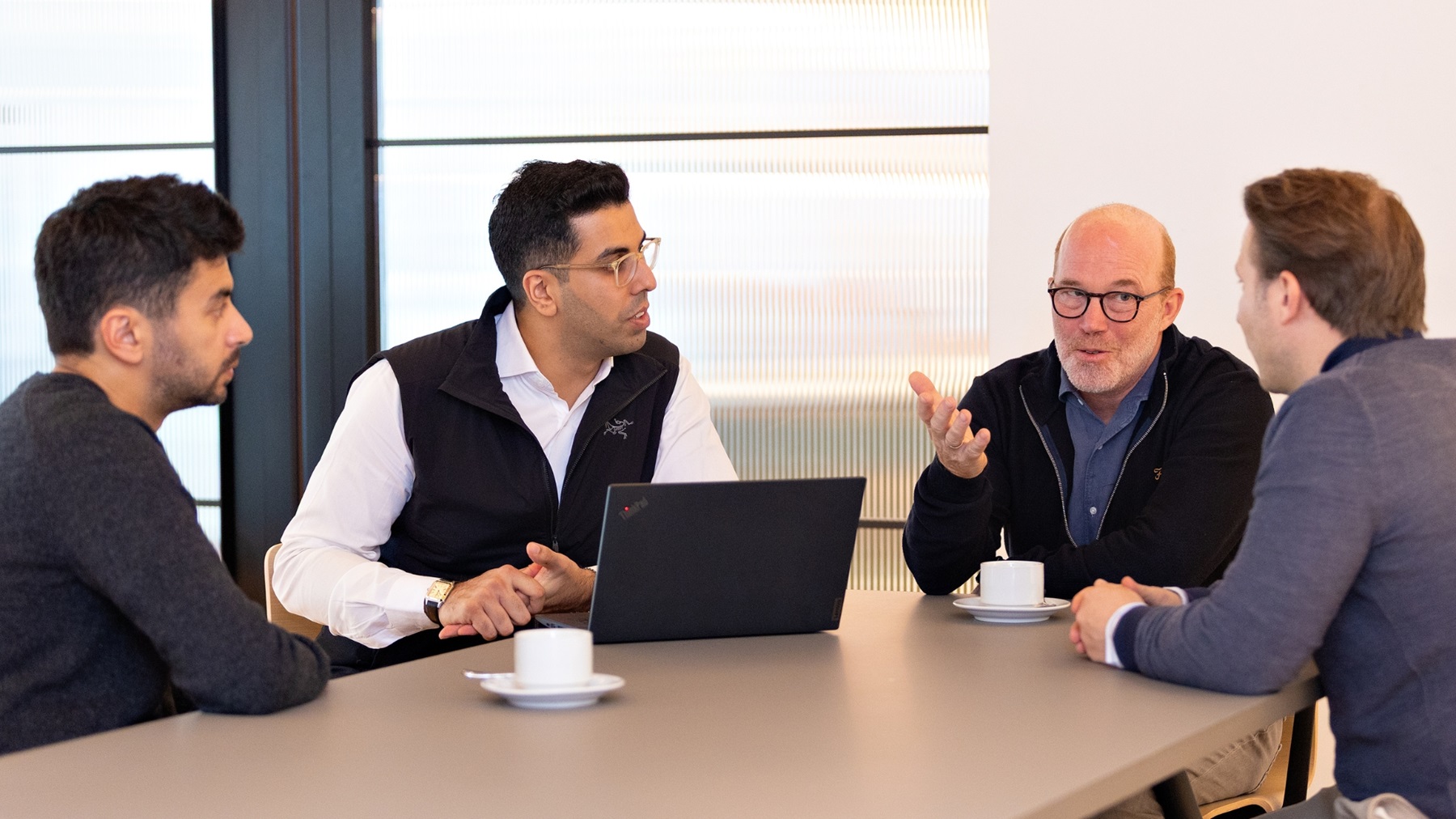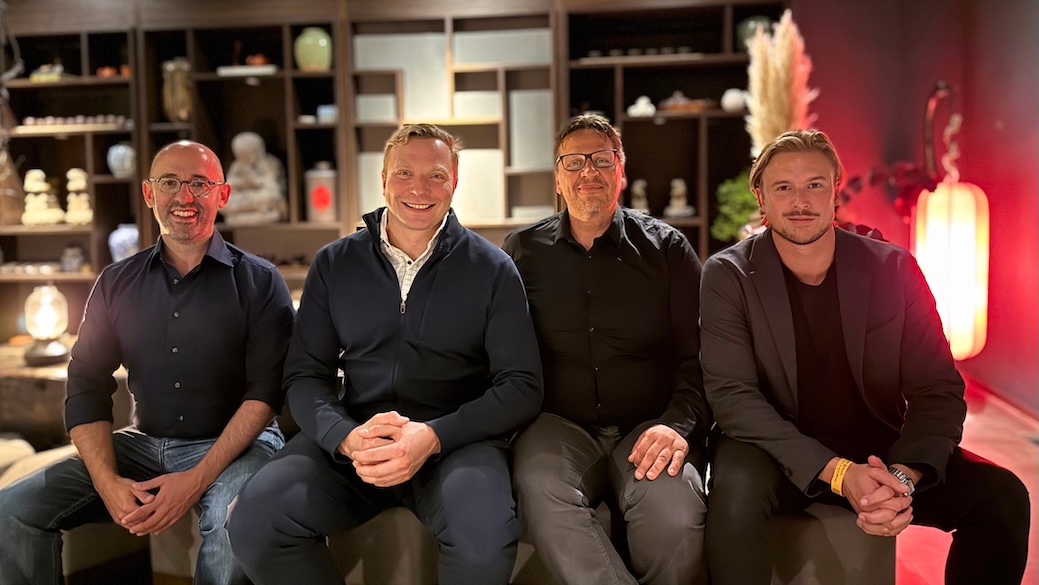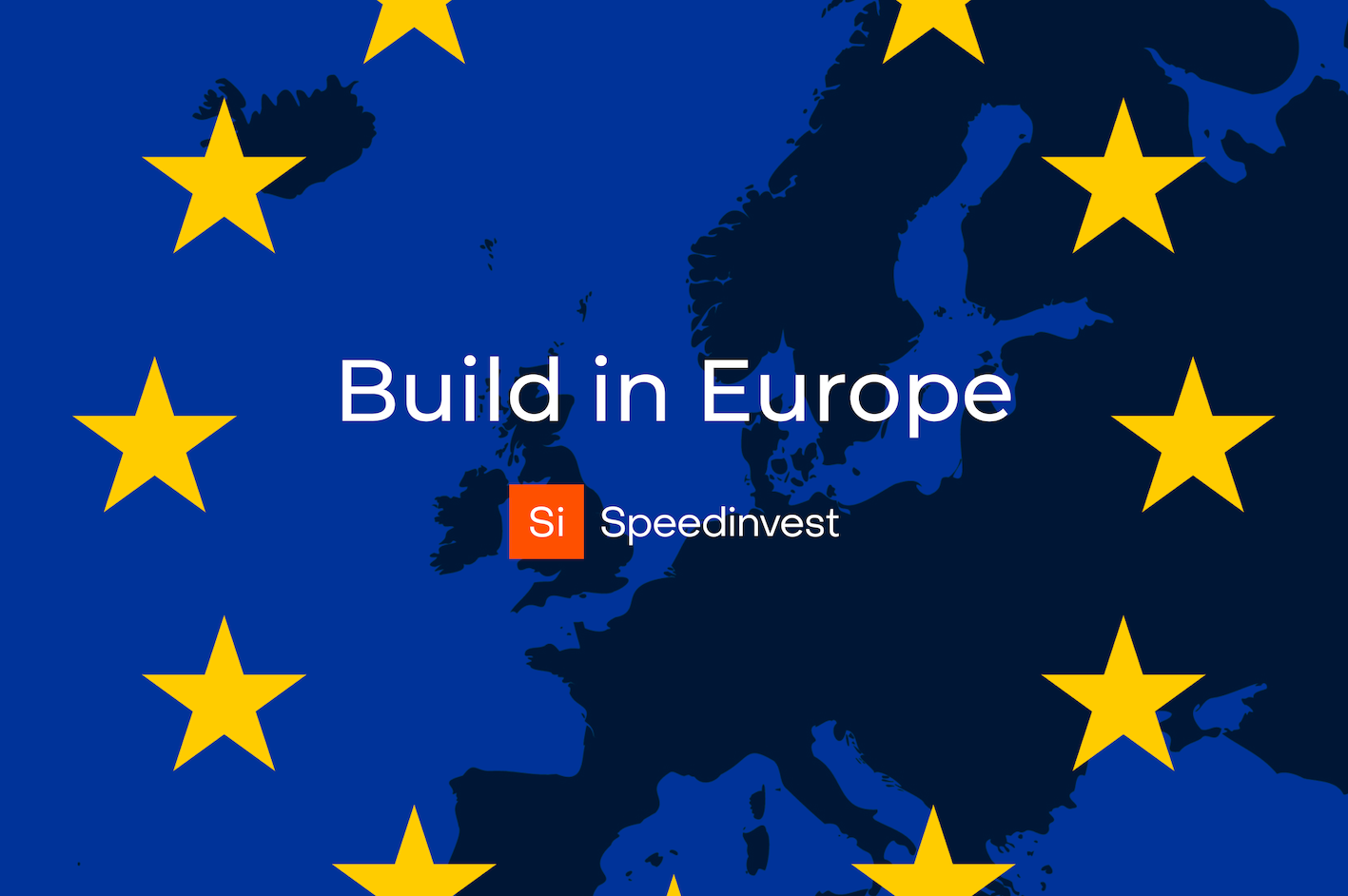How To Nail Your Next Interview With a Journalist
You’ve raised your round, sent out the press release, and managed to get some bites from journalists. Congratulations! But what’s next? How do you actually prepare and nail that interview with the journalist?
Chances are you’ve seen and read plenty of tech interviews over the years. The quotes sound so crisp, concise, and well thought out. You might be wondering how you can do the same thing and distill your entire startup down to an easily digestible sound bite without boring or confusing your audience. For answers to these questions and more, we reached out to our old friend, Patricia Allen.
Patricia is the former Editorial Director at EU-Startups, a digital magazine focused on covering the startup scene of Europe.
Patricia shares her tips on what you should do once you lock in the interview, how you can prepare, and what you need to do to let your personality stand out and continually improve your communication skills when speaking with journalists.
Watch our edited interview with Patricia or read the full chat below, lightly edited for brevity and clarity.
Imagine a founder has landed their first interview with a journalist. What's the first thing you'd recommend that they do?
The first thing is, congratulations! Because getting an interview with a journalist can sometimes be a little bit tricky. So the first thing is to be proud of yourself, and get ready.
First of all, you need to go about the logistics, make sure your meeting is scheduled into your calendar, find out what kind of different themes and topics that the journalist wants to cover, and just make sure you have that groundwork done. You need to make sure that you know your company inside and out, which I imagine you will do as a founder.
You need to be able to explain it in a way that's understandable and digestible. So make sure you can do it in a short form format, but also be prepared to get into the depth of things a little bit more. So it's kind of useful if you can spell out your company's vision, your company's mission, and what you do, and in as simple words as possible.
Related Reading: How To Build a Brand | Tips and Best Practices From an Expert
What about rookie mistakes? What are some of the most common ones that you see founders are making in interviews? And how would you recommend that they avoid them?
I think the most frequently occurring problem is when founders focus too much on the technicalities. I think that that can actually come from a place of being nervous or anxious about the interview. Because every founder has probably had to describe or explain their startup to somebody who doesn't understand their startup. So they're all capable of doing it. If you've created something, chances are, you are able to understand and explain it.
But if you get too bogged down in the technical details of your startup, it can become hard to understand, especially in the tech space. Not everybody's a fintech expert, not everybody's a deep tech expert. You need to be able to explain things as basic as possible. From there, different questions can tease out and you can explain more of the details and the nitty gritty, and data things and more complex parts of your startup. But I think the biggest mistake really is going too technical from the beginning. From the very beginning, you want to have that short-form answer of what you do in a nutshell, as simple as possible.
I think another mistake can be when founders don’t show their personality and don’t express themselves. I think your personality is a big thing. It's super important in an interview to help it flow and to tell your story a little bit more. The vision behind the startup is important to shine a light on, especially from the very beginning. We want to know your journey, and who you are as a person is interesting!
What about the journalists themselves? Should founders spend any time researching the journalist that’s interviewing them prior to doing the interview or just go straight into it?
I think it's a good idea to do a little bit of research first. But I do think that this maybe would depend on the founders' personality, like if they're confident enough to just jump in or not. If you do a bit of research first, you can find out a little bit more about them, what kind of questions they're going to ask, and what background they're coming from, who's their audience as well.
For example, at EU-Startups we're writing about all types of startups and our audience is coming from the whole spectrum of people who are deep tech experts and people who aren't. But there are also journalists who are writing specifically for an audience that are experts. So if you know the journalist, and you know where they're coming from, that can also help inform your answers a little bit. So for me, I think it's a good idea to do it, to just at least do the basics of knowing who they are, where they're coming from, who their audience is.
Going from there, if you have time, you can do a little bit more research and build up a bit of rapport with the journalist, which I think is quite useful as well. Because the better interviews are those that are more conversational, at least in my experience, they can flow a little bit more. So if you know the journalist or if you've done a bit more research on the journalists, maybe you can have a bit of back and forth with them. You can bring out a bit more of your personality as well.
What about the location? These days, you might do an interview in person, you might do it on Zoom, or even a good-ole-fashioned phone call. How would you recommend founders prepare, based on the different mediums?
It's gonna depend ultimately, on whether it’s a Zoom call or phone call or in person. The first step is to know exactly what format it's going to be taken and which platform and then you can go from there.
If it's going to be a video, make sure that you have access, first of all, to the video platform, the video software that they're using, you have an account, and so on. Make sure that you have a place that you feel comfortable in, that you're not going to have too many distractions going on, you can have good acoustics, and if it's being recorded, so that they definitely can hear you and pick up all of your points.
A lot of founders underestimate the importance of feeling comfortable with where they are and where they're having the interview. It's very easy to think, “Oh, I'll just do this interview on the phone while I'm on the train.” But maybe you don't want to talk about your startup and go into the details of what you're doing and how much money you're raising when you're sitting in public on the train, right? That's maybe not the best situation. Maybe for your time schedule, yeah, it works. But for the outcome of the interview, maybe not.
So think about if you're going to be comfortable there talking and that you're not gonna have too many distractions. If you can put your phone on Do Not Disturb mode, so you don't have Slack beeping at you every five minutes as well, that's quite useful. Because not only will that mess up the sound for the journalist, but it's also going to distract you and take you off point if you can see your inbox flashing at you and hear it as well.
You mentioned the importance of knowing your story. What are some of the questions founders should always be prepared to answer when they're talking about their companies?
In my own process, I like to give a heads-up or at least talk a little bit first with the founder about what we're going to discuss. That way we can see if there's anything specifically that they want to pull out that we want to talk about. Maybe there's a new product line, a new initiative, or maybe there's a new acquisition deal coming up that might be interesting to talk about.
I think the first step is to kind of understand what themes and overarching topics are going to be discussed, in terms of what always gets asked, or at least what I always ask. I start from the beginning with getting to know a bit more context about the startup. That's when, as I mentioned earlier, knowing how to explain your startup, what it does, in a very short, basic way. But then also being able to extend that later on, is key.
Put simply, you need to have a snappy answer to what you're doing, why you're doing it, and how you're doing it. It needs to be digestible and accessible. Think, mission-vision-inspiration.
Then if you can tell a little story or an anecdote about your journey/startup, that is great because that's what's going to make you stand out, make you more personable, and make the interview a little bit more special. If you can add some color to why you're doing what you're doing, that's wonderful. I think it can write a really, really nice story.
From there, the journalists themselves can delve into more spicy stuff and add a bit more flavor there. So be prepared for that, which is why I think it's important to have the short-form answers but also have in mind the long-form potential for expansion into those questions.
Aside from that, know your metrics and don't make things up. Know your facts. If you can have them there, that's great. If you don't know them in the moment, when you're asked a question, you can probably follow up. Don't worry. But the more facts you can know, the better, especially if you do mention, like a new initiative or a new launch, or you're claiming to be the best at something or to just achieve something, you need to be able to back it up.
The other thing that I think is important to know is your USP. What makes you as a founder, or what makes your startup stand out and special?
You were talking before about how some people might be just confident enough that they can just go in there and do the interview, no problem. But I imagine that for a lot of founders, this is completely foreign territory for them. So what would you recommend founders do to calm any pre-interview jitters?
First of all, take a deep breath. A big inhale and a big exhale. Counting to 10 is really great. Also, just have some perspective, like journalists are people, and we're not scary monsters out to get you. We want to tell your story. Ultimately, if we're doing an interview with you, it's to tell your story.
You have control over that. It's your story, right? So you're getting the chance to tell it. You have the narrative there. If you're nervous beforehand, address why you're nervous. If you're nervous because you don't know what kind of questions you're going to be asked or what kind of themes or topics you're going to have to talk about, ask the journalist. It's no problem. We would rather you ask, and then you can prepare and give better answers.
If you're nervous, because you just don't like public speaking, and that's not really your jam, then you're going to have to go down the inhale, exhale, route and have some perspective. Look at it this way. It's just two people talking, talking about your passion project and talking about what you're working on, which is something that you really can do anytime. So yeah, don't worry about it. Fake the confidence if you need to, but it's honestly not as scary as it might seem to do an interview.
What about during the interview? What if you forget your train of thought and the interview just isn't going the way you thought it would go?
We have all been in that situation when you're talking and you're like, what was I even talking about? It is a habit, it happens to everyone, and obviously, each and every one of us. That comes to just being aware that journalists are people, to just tell them if you start to lose your train of thought, take a pause, and you literally can pause and say, ‘one second, let me just circle back,’ or ‘Can you repeat the question?’
Just be open and honest. It does happen to everyone. When you take a pause whenever you're talking, and it might seem in your head, like you've stopped speaking for 10 minutes, but probably it's only been like 10 seconds. So yeah, really, don't worry about that.
If a question comes up that you weren't expecting, or you're not really sure how to answer, just take a couple of seconds to think about it. There's no harm in doing that. Politicians do it as well. Public speakers across the world do it. Sometimes questions come up that you need to take a second and you think about it. It's better to take a second and think about it rather than lie or make up something or go off on a tangent that's completely randomly and then get yourself caught in a strange loop.
If you really, genuinely don't know how to answer, or you really don't want to answer, you can also say that. You're a free person. Just say, “Hey, I don't want to answer that question,” or “I need to get back to you on that with some more details. And I need to check some things out, get some research for you, some stats.” That's that's no problem as well.
Is it okay for a founder to follow up with a journalist if they want to add something to the interview?
Yeah. I mean, for me, generally, it is okay. Within reason. I say within reason because I don't think you should spam and every five minutes go, “oh, I should have said this.” And then the next day, you're like, “oh, I should have also said this.” That's maybe taking it too far.
But it's absolutely okay to send some requests and to say, “Hey, I forgot to say this, can I add in this?” That's no problem at all. It comes from knowing your journalists and having a good rapport and relationship with them. If you can just say to them, “Hey, really sorry, can we add in this detail?” I would say most of the time, they'll be happy to do it. We want to tell your story, and we want to tell it well. If adding these details, and these extra bits of color helps do that, it’s absolutely no problem to do that at all. I wouldn't think about it twice. A good story is what we want, at the end of the day. Just maybe don't overdo it and over spam. As I say, within reason. But that's absolutely fine.
The other thing to keep in mind is maybe check before the interview if that will be okay with that specific journalist. You can do that a couple of days beforehand, so that you can prepare accordingly. Just be open and transparent. Normally, there will be a bit of flexibility there.
How would you recommend that somebody continually improves on their communication skills for interviews?
Practice makes perfect, right? That's the old saying, and it's true. Practice makes perfect.
You’ve got to get out there and try it. You can do little practices, like with your friends, with fellow team members, with family, with people you feel confident and comfortable with to get more used to how it works. Practice being concise with your answers. That's a bog-standard way to go around it.
You could also read and listen to other interviews and see how other founders are going about it. Work on your confidence, work on your self-confidence, and your positioning. Ultimately, doing interviews is really a personality thing. Some people will be really good at it. Some people, it's not for them. And that's okay. You don't have to be great at everything as a founder. That’s why it’s great if you have co-founders, or you have other members of the team, because maybe there will be somebody there who is really great at interviews and loves it, and maybe you don't. So maybe you work it out between your team who goes forward and takes on the interviews.
Want more updates on our portfolio? Sign up for our monthly newsletter and follow us on LinkedIn.












.svg)
